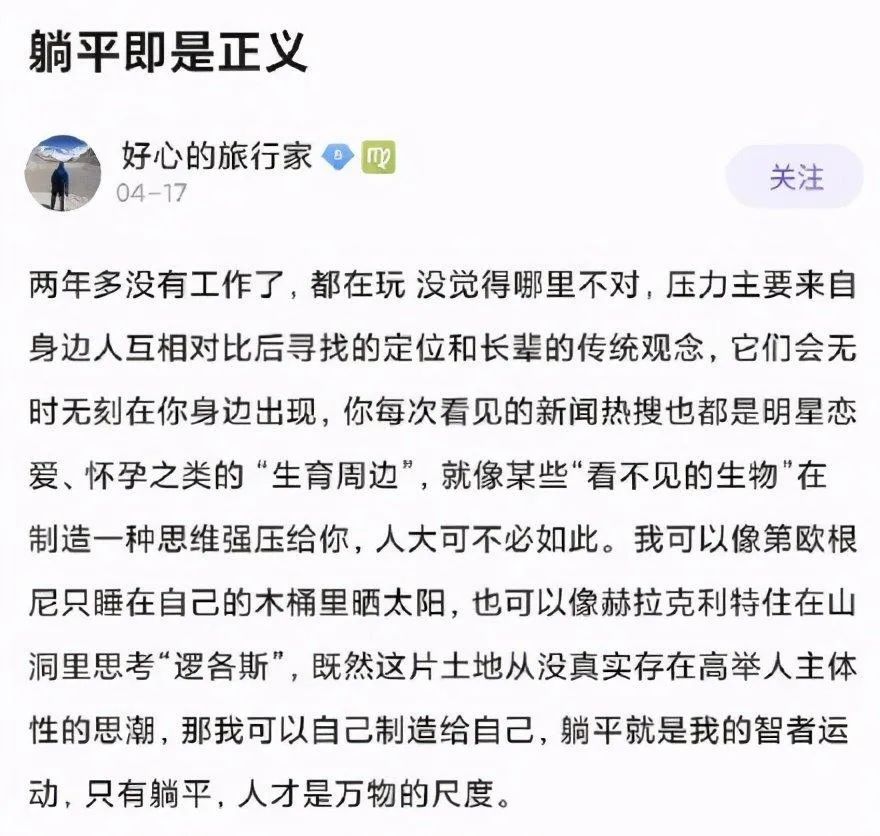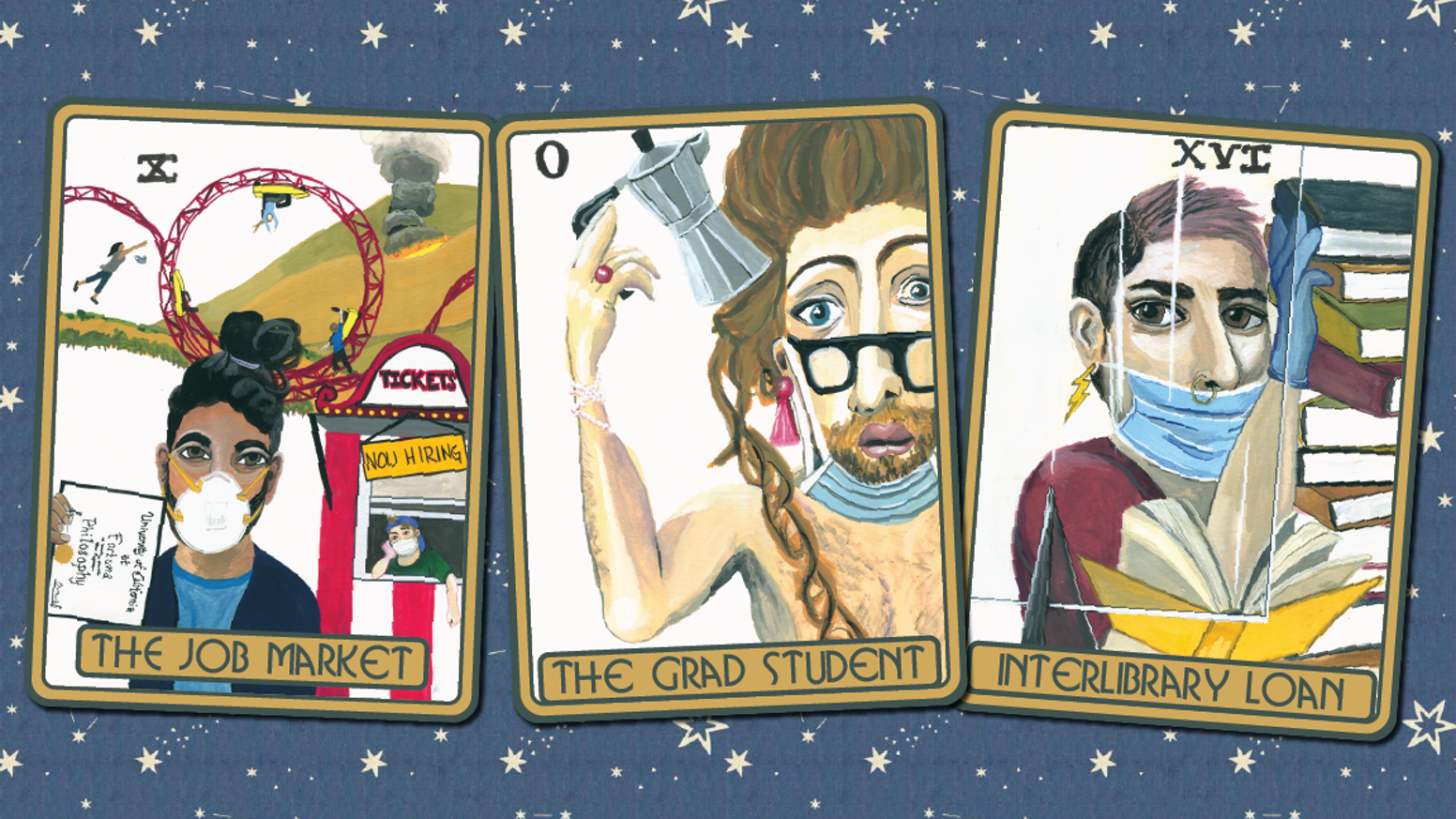The “Lying Flat” movement taking hold among young people in China involves doing exactly what it suggests: working little, resting a lot, and cultivating the most minimalist lifestyle possible. Unlike Timothy Leary’s 1960’s mantra, “turn on, tune in, drop out,” lying flat, or tang ping (躺平), takes no stance on a countercultural ethos or the consumption of mind-altering drugs. But it has caused the authorities alarm, even among English-language observers. Consider the Brookings Institute headline, “The ‘lying flat’ movement standing in the way of China’s innovation drive.” Standing in the way of innovation is a cardinal sin of capitalism, one reason the “niche Chinese Gen Z meme” of tang ping, Jane Li writes, “is ringing alarm bells for Beijing.”

The phenomenon began — where else — on social media, when 31-year-old former factory worker Luo Huazhong “drew the curtains and crawled into bed,” Cassady Rosenblum writes at The New York Times. Luo then “posted a picture of himself [in bed] to the Chinese website Baidu along with a message: ‘Lying Flat is Justice.’”
His manifesto (above) claimed the “right to choose a slow lifestyle” by doing little work to get by, reading, gardening, exercising, and, yes, lying supine as often as he liked. To further elaborate, Luo wrote, “lying flat is my sophistic movement,” with a reference to Diogenes the Cynic, the Greek philosopher “said to have lived inside a barrel to criticize the excesses of Athenian aristocrats.”

Diogenes did more than that. He and his followers rejected everything about Athenian society, from work and marriage to the abstract reasoning of Plato. Luo might have turned to a more traditional source for “lying flat” — the Daoist principle of wu-wei, or non-doing. But lying flat is not so much about living in harmony with nature as it is a state of exhaustion, a full-body admission that the promises of capitalism — work hard now, rest hard later — have not and will not materialize. They are phantoms, mirages, precisely the kind of fictions that made Diogenes bark with laughter. The truth, Rosenblum writes, is that for “essential” workers at the bottom all the way up to the “inner sanctums” of Goldman Sachs, “work has become intolerable. Rest is resistance.”

In a work culture that celebrates “996” — 12-hour days, six days a week– rest may be the only form of resistance. Political repression and lack of upward mobility have fostered “an almost monastic outlook” in China, writes Li, “including not getting married, not having children, not having a job, not owning property, and consuming as little as possible.” Since picking up tens of thousands of followers online, the lying flat movement has become the target of a censorship campaign aimed at stopping young Chinese workers from checking out. One government-backed newspaper called the movement “shameful,” and news agency Xinhua unfavorably compared “lying flattists” to front-line medical workers. The original manifesto, Lying Flat groups, and message boards where users posted photos of seals, cats, and themselves lying flat have been taken down.
Zijia Song writes of tang ping as partly a response to a traditional Chinese culture of competitiveness and overwork, but notes that there are similar movements in Japan, Korea, and the U.S., where “Black activists, writers and thinkers are among the clearest voices articulating this spiritual malaise and its solutions,” writes Rosenblum, “perhaps because they’ve borne the brunt of capitalism more than other groups of Americans.” Whatever their national origin, each of these statements defiantly claims the right to rest, posing a threat not only to the Party but to an ideal of human life as endless overwork for shiny trinkets and empty promises, during a global pandemic and climate crisis that have revealed to us like nothing else the need to slow down, rest, and completely reimagine the way we live.
Related Content:
Bertrand Russell & Buckminster Fuller on Why We Should Work Less, and Live & Learn More
Brian Eno’s Advice for Those Who Want to Do Their Best Creative Work: Don’t Get a Job
Josh Jones is a writer and musician based in Durham, NC. Follow him at @jdmagness



